Part 13: The Man With No Brothers
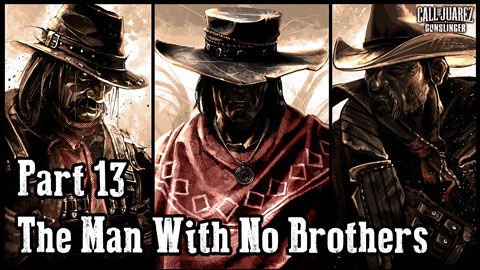
And with that we come full circle.
I wanted to post this yesterday but my external harddrive ate the first encode. I fear it’s joining Jim Reed, Johnny Ringo, and a plethora of other dead guys in the afterlife soon. Also, I’m skipping one of the nuggets because it’s a spoiler, I’ll post it later with the duel update.
For the endings, in case you're watching this on something other than a PC and not getting the annotation overlay, there's timestamps in the descriptions, and you could also, of course, manually go to either 19:00 or 21:28. Making this a vote and splitting videos seemed like a bad idea, but I wanted to leave some feeling of choice to remain.
Concept Art
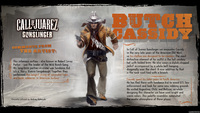

Nuggets of Truth
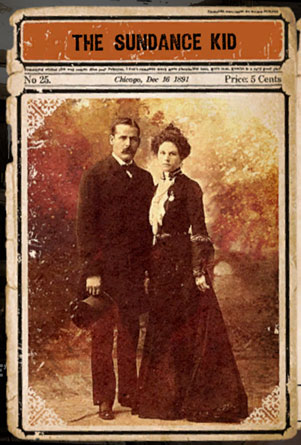
Harry Alonzo Longabaugh earned his moniker by serving an 18-month sentence for horse thievery in Sundance, Wyoming at the age of 15. His fame, however, was won alongside Butch Cassidy as a member of the Wild Bunch.
He was often called a gunfighter but there is not a single death by shooting which can be easily attributed to the Sundance Kid. It is quite possible that the newspapers of the time mistook another truly murderous member of the Bunch, Harvey Logan a.k.a. Kid Curry, for Sundance.
Together, with his wife Etta Place and Butch Cassidy, they fled the U.S. and the authorities in pursuit of them to hide out in South America. There, in Bolivia, he allegedly died alongside his friend in 1908. We cannot be sure, though, as there are those who believe that Longabaugh returned to the United States and lived for many years under a different name. His story will forever remain a mystery.
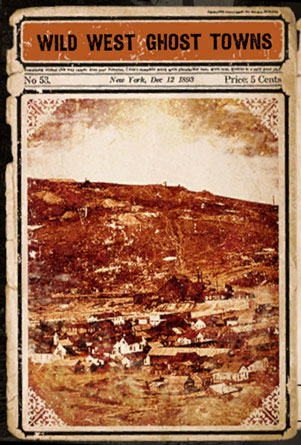
The Wild West was inhabited by rapidly migrating groups of pioneers looking for new opportunities. Whether it be arable land for farming, pasture land for grazing cattle, or rich mineral deposits of gold or silver for mining, they came in droves to make their fortune, creating large spontaneous communities known as boomtowns.
When the source of this wealth ran out - a gold vein was depleted or prices for a commodity fell rapidly – the boomtown would start to die leaving empty streets and abandoned houses. These deserted towns came to be known as ghost towns. One of the best known is Bannack, Montana. Famous for its 1860's gold rush, the Sheriff there was none other than Henry Plummer, later revealed as leader of a massive gang of bushwhackers and killers known as "The Innocents". When the gold ran out, Bannack was abandoned. Today it's a stop for tourists looking for a taste of the old west.
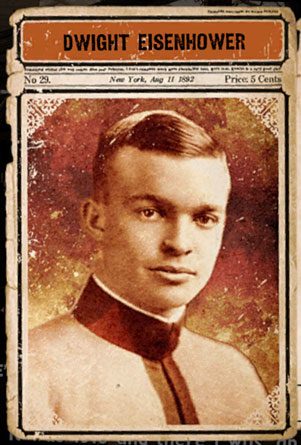
The thirty-fourth president of the United States was born on October 14, 1890 in Denison, Texas. He grew up in Abilene, Kansas, and died in Washington D.C. on March 28, 1969. Before he was elected as president, he had been a Five-star general in the United States Army and the Supreme Commander of the Allied Forces in Europe during the Second World War. Over the course of his presidency, between 1953 and 1961, the number of nuclear warheads in the U.S. grew from 1000 to 18000. However, he did end the Korean War soon after being elected. During his time in office, NASA was created and the Department of Health, Education, and Welfare was established. Eisenhower also was instrumental in the Federal Aid Highway Act of 1956, which started the construction of the Interstate Highway System. He was a moderate conservative who expanded Social Security and sent Federal troops to Little Rock, Arkansas for the first time since Reconstruction to enforce federal court orders to desegregate public schools.
Young Dwight had been an avid reader, especially fond of military history and tales of the old west. Growing up in Abilene, he enjoyed talking to the old timers about the days when Abilene was a major destination for cattle drives. He was also a great fan of poker. The love for the game was instilled in him by an old cowboy who Dwight considered a mentor and a friend.
[Fleve: Apparently, the nuggets aren’t bullshitting us in the Eisenhower bit. Dwight got taught percentages, poker and a whole bunch of outdoor skills by one Bob Davis. Eisenhower described him as ‘a traveler, a fisherman, hunter, and guide. He was also a bachelor, a philosopher, and, to me, a great teacher. Bob, about six feet tall, a little stooped, quiet and gentle, was in his fifties when I knew him, roughly from age eight to sixteen. He never seemed to be annoyed when I went along on expeditions to the Smoky Hill River…’ ]